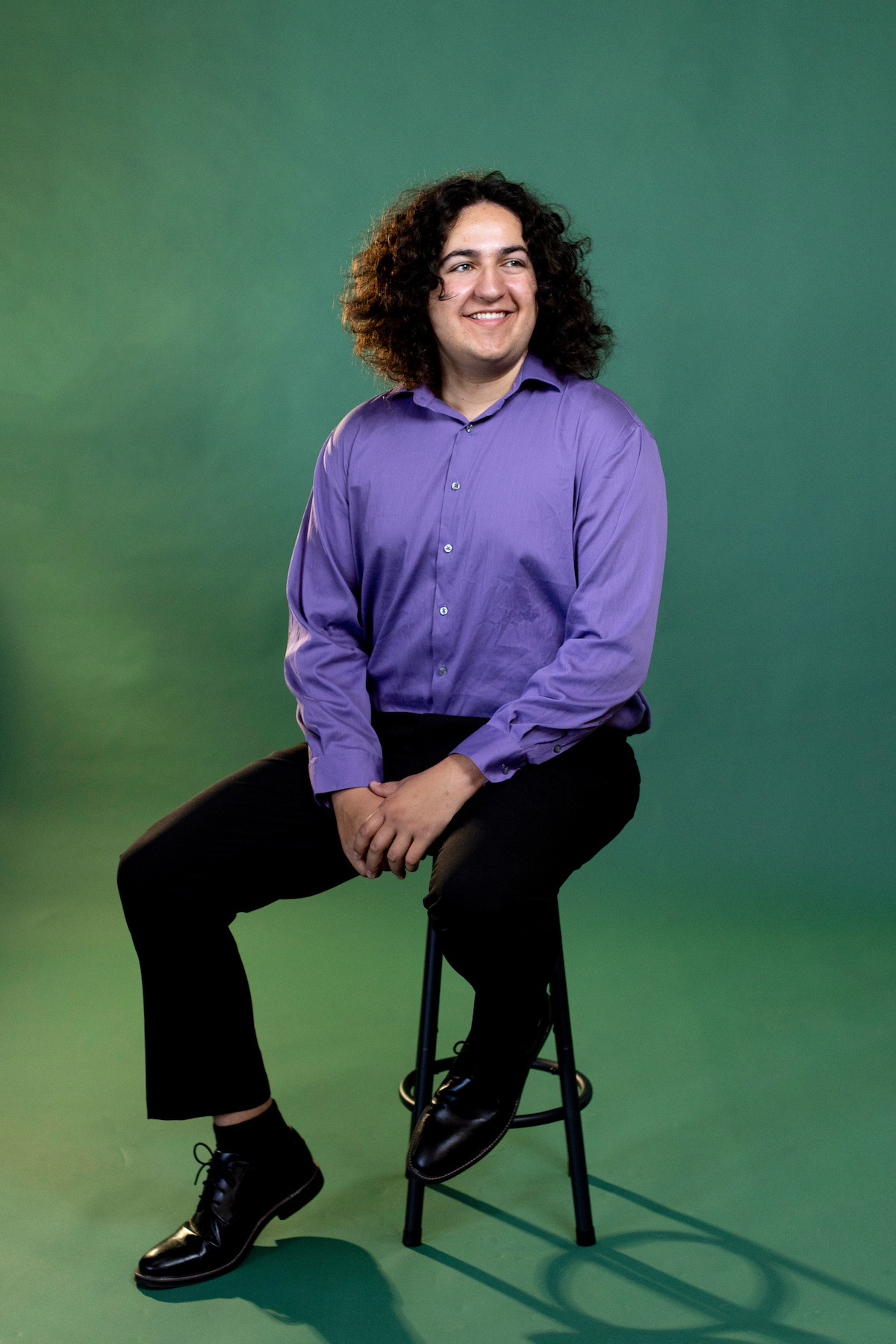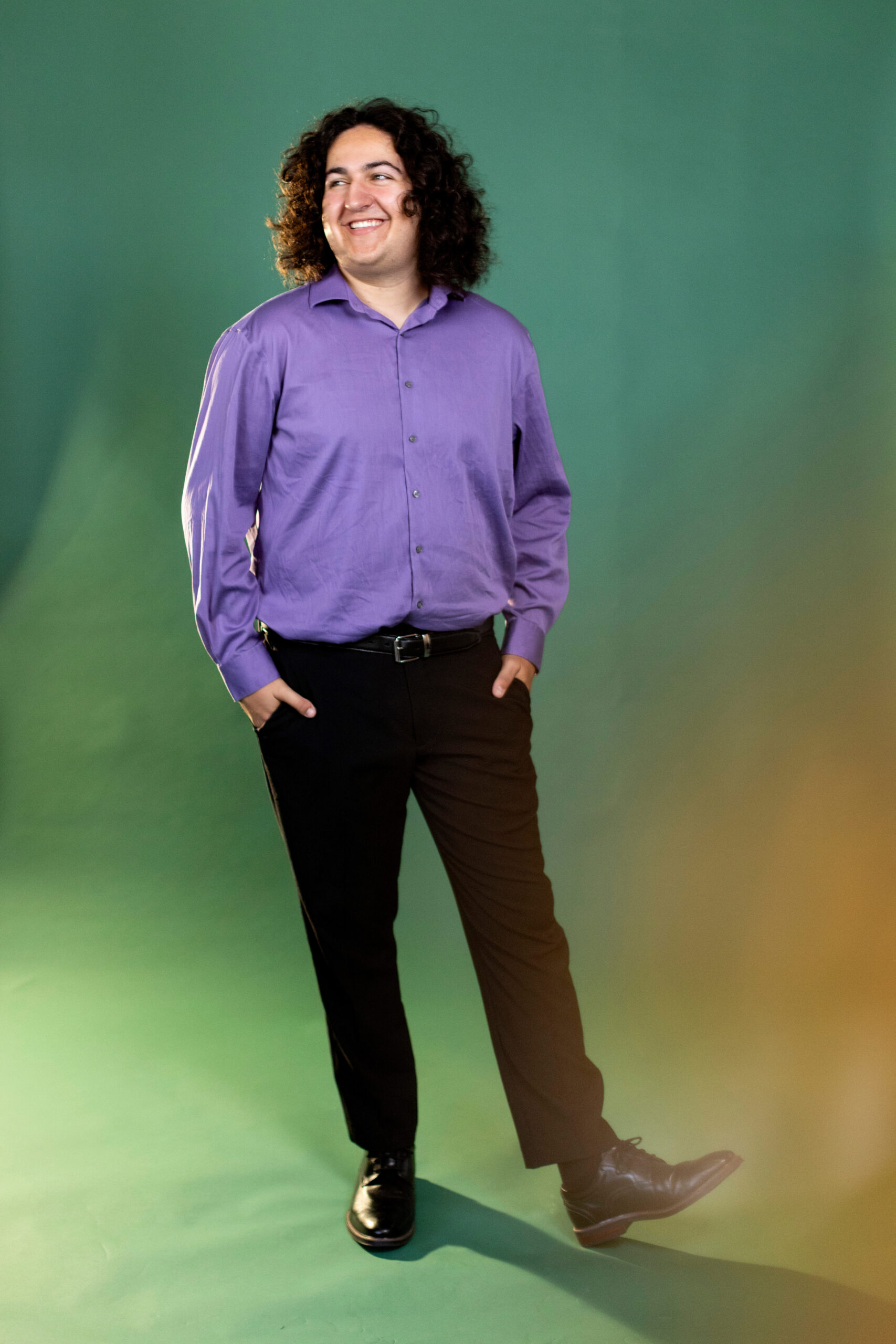Solopreneur’s wearable tech aims to revolutionize communication

In the world of startups where collaboration and teamwork often take center stage, California Polytechnic State University (Cal Poly) mechanical engineer Alex Rosenbaum stands as a solo entrepreneur. As the sole founder of NeuroCom, Rosenbaum is not only developing a wearable device but is also mastering the multifaceted role that comes with running a startup by himself.
NeuroCom is developing a wearable tactile interface device designed to enhance communication and situational awareness for military personnel, law enforcement officers and firefighters.
His startup came to fruition after learning about the field of sensory substitution, the process of substituting or augmenting one sense by replacing it with stimulation from another sense.
“I wanted to find applications for this technology in ways that can help people,” Rosenbaum explained.
NeuroCom stands out in its field as the only product that uses tactile and haptic sense to communicate location information.
As a mechanical engineering student, Rosenbaum didn’t initially envision himself as an entrepreneur. His journey began unexpectedly when he participated in the Cal Poly Biomedical Make-a-Thon, which opened him up to the world of startup opportunities on campus, he recalled.
Sponsored by the Center for Innovation and Entrepreneurship (CIE), the Biomedical Make-a-Thon provides students with the opportunity to work in teams of 4-6 designers and commercializers to research, develop, design and present a solution to a medical problem in a fast-paced, three-day event.
Rosenbaum participated in this event twice and won both times for his unique and innovative ideas. These ranged from a biometric scanning device for fast, non-contact readings of blood pressure, glucose and heart rates to an ear-mounted device that detects fainting in people with Postural Orthostatic Tachycardia Syndrome (POTS).
This experience built a strong foundation for his entrepreneurial journey and led him to apply for the CIE’s Innovation Quest (iQ), a high-stakes competition where Cal Poly students pitch their innovative business ideas to a panel of judges in the hopes of winning funding for their startups.

Founder of NeuroCom, Alex Rosenbaum. Photo by Ruby Wallau
After pitching two different startup ideas at iQ, one of which being NeuroCom, Rosenbaum decided to take the next steps to turn his concept into a real business through the CIE Summer Accelerator.
The Accelerator is an intensive 12-week program that provides Cal Poly students and recent graduates with the resources necessary to turn their innovative ideas into full-fledged startups.
Participants receive $10,000 in seed funding, as well as access to expert mentorship, entrepreneurial workshops and a dedicated workspace in the HotHouse, the CIE’s office located in downtown San Luis Obispo.
“I was inspired to apply for the Summer Accelerator because I wanted to take my business to the next level, from initial prototype to nailing down and validating my target market,” Rosenbaum explained.
Despite the obstacles that solopreneurs face without having a full team to rely on, Rosenbaum has made significant strides in advancing NeuroCom with the support of the CIE.
“Because I’m a mechanical engineer, transitioning into the business side of a startup has been challenging. It wouldn’t be possible without all the resources from the Hatchery and CIE that you can access before you’re in the Accelerator program and without taking any classes at all,” he said.
The Hatchery is an on-campus startup incubator that provides student entrepreneurs with the resources to launch a business idea.
Not only has he utilized the resources that the CIE offers, but the community within the Accelerator cohort. “It’s been so important to talk to other people in the Accelerator program and bounce my ideas off them,” said Rosenbaum. He explained that as a solo founder, having other entrepreneurs around has been essential to his experience.
Rosenbaum recently began working with contractor and Cal Poly alumnus Colin Brown (economics, ‘23) to delegate certain tasks, allowing him to focus on his priorities and ensure the business is headed in the right direction, he said.
Rosenbaum’s ambition with NeuroCom extends beyond developing a wearable device, but contributes to a future where technology enhances human capabilities. His pursuit of this goal showcases the potential of solopreneurs in shaping the future.
About the Cal Poly Center for Innovation and Entrepreneurship:
The CIE opens a world of entrepreneurial opportunity to Cal Poly students, faculty and community members and promotes entrepreneurial activity and dialogue across the university and throughout San Luis Obispo County. For more information, visit cie.calpoly.edu.
# # #